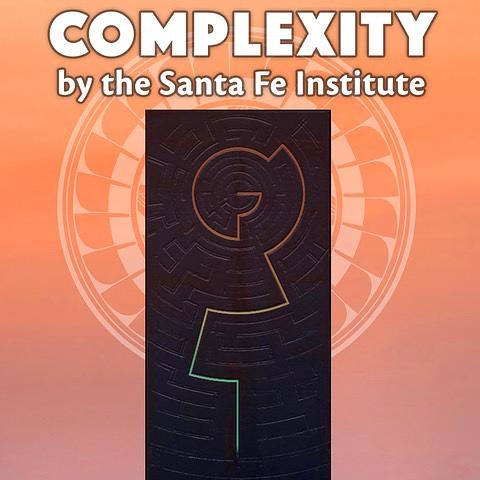
- [] /
- 03 Dec 2019
- Agent-Based Modeling Nonlinear Dynamics Complex Systems Art
Plant forms, an Impression Figure by Margaret Watts-Hughes, pigment on glass, date unknown. Courtesy of Cyfarthfa Castle Museum and Art Gallery.
Fall Fundraiser Updates
It is officially winter here in Santa Fe, we were happy to have two big snowstorms last week, and many of us were very excited that the Santa Fe Ski Basin opened on Thanksgiving Day!
We would like to extend a VERY BIG thank you to the entire Complexity Explorer community for all of your generous contributions to our Fall Fundraiser. We have also had an overwhelming response to our survey, which is so exciting for us and incredibly helpful as we plan for the future of Complexity Explorer.
 We are excited to announce that we have raised almost $5,000! If you haven’t had a chance to donate yet, you still have 2 more days until the fundraiser closes.
We are excited to announce that we have raised almost $5,000! If you haven’t had a chance to donate yet, you still have 2 more days until the fundraiser closes.Donate Now
If you have enjoyed our courses, being part of the community, and are looking forward to new and exciting endeavors with Complexity Explorer, please consider choosing to give a little bit to us on this Giving Tuesday. If everyone gave just $1, we would easily surpass our goal in no time.
Not able to contribute by donation? You can also participate by TAKING OUR SURVEY or forwarding this email to a friend!
We will be randomly choosing our raffle winners this week, so look out for an email on Friday, December 6th to see if you have been selected.
Our super-secret surprise prize raffle for donations over $100, is a scholarship for free enrollment to our Agent Based Modeling course, launching on January 15th, for you or a friend or colleague. See below for more details about the course.
Upcoming Courses
Two courses will be launching on January 15th, 2020
Introduction to Agent-Based Modeling
About the Course
This course will explore how to use agent-based modeling to understand and examine a widely diverse and disparate set of complex problems. During the course, we will explore why agent-based modeling is a powerful new way to understand complex systems, what kinds of systems are amenable to complex systems analysis, and how agent-based modeling has been used in the past to study everything from economics to biology to political science to business and management. We will also teach you how to build a model from the ground up and how to analyze and understand the results of a model using the NetLogo programming language, which is developed and supported at Northwestern University by Uri Wilensky. We will also discuss how to build models that are sound and rigorous. No programming background or knowledge is required, and the methods examined will be useable in any number of different fields.
While this course is in session, the first unit will be completely free and open; we request a modest tuition to continue through the course and to receive a certificate. Once the course is closed, the videos and quizzes will all be open and freely available. A limited number of scholarships are available.
Nonlinear Dynamics: Mathematical and Computational Approaches
About the Course
This course provides a broad introduction to the field of nonlinear dynamics, focusing both on the mathematics and the computational tools that are so important in the study of chaotic systems. The course is aimed at students who have had at least one semester of college-level calculus and physics, and who can program in at least one high-level language (C, Java, Matlab, R, ...)
After a quick overview of the field and its history, we review the basic background that students need in order to succeed in this course. We then dig deeper into the dynamics of maps—discrete-time dynamical systems—encountering and unpacking the notions of state space, trajectories, attractors and basins of attraction, stability and instability, bifurcations, and the Feigenbaum number. We then move to the study of flows, where we revisit many of the same notions in the context of continuous-time dynamical systems. Since chaotic systems cannot, by definition, be solved in closed form, we spend some time thinking about how to solve them numerically, and learning what challenges arise in that process. We then learn about techniques and tools for applying all of this theory to real-world data and close with a number of interesting applications: control of chaos, prediction of chaotic systems, chaos in the solar system, and uses of chaos in music and dance.
Santa Fe Institute Podcast
Need more complexity in your life? The new SFI podcast, COMPLEXITY, is now live on Apple Podcasts, Spotify, Google Podcasts, and other streaming platforms.



